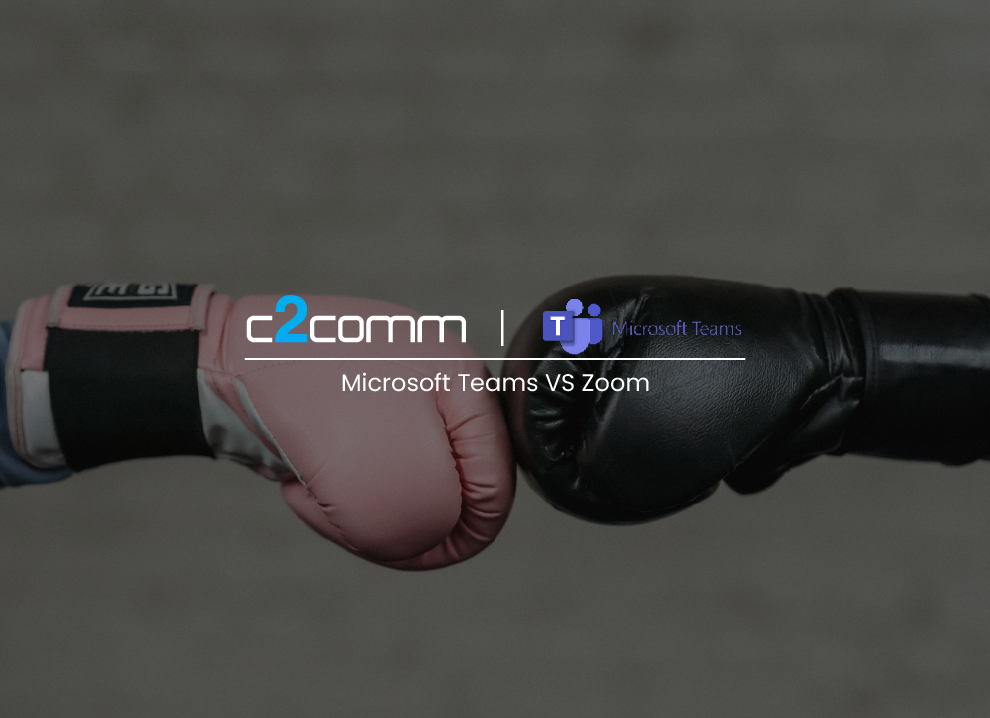The Ultimate Guide to VoIP
While the introduction of the internet brought with it many changes to the way we live and work, perhaps above all, it has indisputably changed the way we communicate.
Voice over Internet Protocol (VoIP), in particular, has been responsible for revolutionising communication for individuals and businesses, providing a cost-effective and convenient alternative to regular phone services.
Interestingly enough, many people don’t realise they are already using VoIP, particularly after the NBN rollout here in Australia.
Despite the growing popularity and reliance on VoIP as a method of communication for users, it remains a mystery to many people.
So, what is VoIP?
What is VoIP and How Does it Work?
VoIP (Voice over Internet Protocol) is a communications technology that utilises an internet connection rather than a phone line.
VoIP users can make calls using numerous devices, including smartphones, computers and certain browsers and apps with WebRTC (web real-time communication).
The way VoIP works is by transforming audio signals into digital data which is then sent to whoever the user is talking to via mobile data, or Ethernet.
VoIP will use codecs for converting the data, meaning the data is compressed into audio ‘packets’ which travel across an IP network and are then ‘unwrapped’ when they reach the other end of the network.
By compressing the data, codecs ensure that the data will reach the other user quickly with little lag, as uncompressed data can be large and take time to transfer, meaning there may be a long delay or lag before the receiver can hear the sender.
This means VoIP is generally more cost effective, as VoIP calls are classified as regular internet traffic, usually resulting in the bills for VoIPs calls being cheaper than regular phone bills.
Are VoIP calls free?
The short answer is, no, VoIP calls are not free, but you probably already know by now that nothing good ever comes for free!
That said, there are some cost advantages when it comes to using VoIP.
For more information about whether VoIP calls are free, check out our article on the subject. For now though, we can give you a bit of insight into its cost efficiency.
One example of reduced operating costs is the ability to make international calls within your business for free, as VoIP calls are classified as internet traffic. This can be a huge cost-saver for businesses with multiple locations and offices abroad.
Also, don’t underestimate the costs associated with poor communication. Sketchy call quality, delays in communication, and the inflexible nature of other systems make VoIP a clear winner when it comes to productivity.
So, while VoIP itself isn’t exactly free, it can go a long way in lowering operating costs and improving overall efficiency. Another factor to consider is your provider, lucky for you we know a great company who can help you out.

VoIP Phone Numbers
A VoIP phone number is not necessarily much different from a traditional phone number in appearance, in that you won’t have a number like 1300-VoIP-MY BUSINESS or anything like that.
No, by using a business communication system such as 3CX, you still use a traditional phone number for your business, be it the usual landline number or a 1300/1800 number, and it is then converted to a VoIP number, allowing you to utilise the functions offered by VoIP services.
Perhaps one of the biggest reasons for confusion with VoIP systems is that we grew so used to the constraints of conventional phones, that it is hard to comprehend the flexibility and ubiquity of VoIP.
But don’t let those constraints hinder you further, it’s the limitless possibilities that the 3CX system offers, that really is a game changer for businesses.
Using any broadband connection, virtual phone numbers can be used to make or receive calls on a range of devices, or on many devices at once, whether it’s VoIP desk phones, which most resembles the traditional desk phone, mobile, or desktop.
With a virtual phone number you can also have calls transferred from one device to another until answered, or redirected to an answering machine.
VoIP phone numbers allow the additional functionality of call forwarding, caller ID, call monitoring, automatic redialling, etc., which benefit businesses in a variety of ways.
With the use of VoIP systems, these features are generally easier to implement and manage.
It’s likely that all numbers will be converted to VoIP numbers in the coming years, with all numbers being allocated virtual SIP lines to accommodate multiple simultaneous calls.
How is VoIP Beneficial for Business?
It’s no secret that fast and effective communication is at the crux of any successful business.
VoIP makes communicating with clients and employees easier and more effective by allowing fast, high quality, and versatile communication.
Whether it’s being able to speak with an overseas client and having the call sound as crisp as if they were in the next room, or being able to communicate with employees working remotely with as much efficiency as if they were on site, VoIP has many benefits to both developing and robust businesses.
If you want to find out more about how VoIP could benefit your business, we’ve written all about the benefits of VoIP for business and how so many businesses are taking up VoIP systems at a rapid rate for good reason. At this stage, it’s becoming less about the benefits of implementing VoIP systems, and more about the repercussions of being left behind.

What are VoIP examples?
There are many types of VoIP services which can either be installed on a computer, on site with a router, hosted in the cloud or purchased as a physical phone. Adding this to an IP PBX (Internet Protocol Private Branch Exchange) system, you will unlock the real power of VoIP.
Software services like Skype are downloaded onto a computer and calls can be made to other users using the same software service. While these services are generally free to install, they lack power and are prone to latency and jitter.
Self-hosted VoIP services are installed by the purchaser, meaning that a high knowledge of VoIP technology is needed, something the average consumer doesn’t necessarily have.
On the other hand, hosted VoIP services are installed by the third-party providers and forgo the head-scratching frustration associated with trying to install an IP PBX.
VoIP phones are exactly like regular phones except they make calls over the internet, in contrast to the public switched telephone network (PSTN) that regular phones use. VoIP phones therefore come with instant messaging, SMS etc.
C2 communications can help you choose the best VoIP service for your business.
What is the Purpose of VoIP?
VoIP allows you to make voice calls using an Internet connection rather than an analog phone line.
There are many advantages of this, which we outline in our blog The Benefits of VoIP for Business.
For businesses, VoIP services help to increase productivity, improve communication, and offer greater overall functionality.
The purpose of VoIP, in a business context, is not too dissimilar from the point of the internet and other advances of technology in business: To communicate more effectively and be more productive.
Now that old-school copper wiring is starting to be phased out due to its inefficiencies, VoIP has emerged with the purpose of being the premier method of communication.
Just as we evolved to rely on these new technologies, the same can be said for VoIP, with new buildings and office spaces no longer being built with copper wire telephone lines, and the internet being the primary, and preferred, replacement.
Even in a remote working situation, as computer systems and an internet connection are more widespread in average households than typical home phones, it makes sense that people would rather use their internet connection to make their calls.
Combined with the fact that VoIP is generally more cost effective than a plan for an old school phone and that VoIP has multimedia capabilities, it’s plain to see why VoIP is the future of voice communication.
Do I need a VoIP phone?
If you aren’t running a business, you probably don’t need a VoIP phone, your mobile phone will suffice for calling others and if you are interested in using VoIP systems, you can find software online using the internet for phone calls that are free or low price.
If you are running a business, and you aren’t already leveraging the capabilities of VoIP, this is your boarding call: It’s time!
But do you need a specific VoIP phone?
Absolutely not.
The thing to remember is, you are likely already using VoIP to some degree. If you use your mobile device or NBN, then you’re using VoIP.

Why Would Someone Use a VoIP Phone?
As previously mentioned in What are VoIP examples?, VoIP phones are the same as traditional phones except that they use the internet to make calls. Some VoIP software and applications can be difficult to use as some software is low quality and suffers from latency and jitter, a VoIP phone is a great alternative.
As VoIP phones can call regular phones and many can be hooked up to the same IP PBX system, VoIP phones are a great choice for businesses who still want to mimic a traditional phone-to-ear device.
But sticking to tradition needn’t be restrictive, new IP phones allow users to continue putting a phone to their ear while also giving them access to a range of features, including colour touch screens and endless customisation.
The good news is that we can help you out with your business phone no matter your business or industry. Just get in touch!
Get a VoIP Phone for Your Business
Is Google Voice a VoIP?
With so many new communications products popping up, it’s a weary task finding out what types of communications these software use.
Google Voice is a very popular software that provides the user a google phone number for calling other people. As Google Voice uses an internet connection in order for the calls to work, yes, Google Voice is a form of VoIP software.
What does a VoIP Phone look like?
Jumping headfirst into buying a VoIP phone system can be a source of anxiety, what does the phone look like? Is it complex and has all sorts of crazy buttons and dials? Worry not! VoIP phones actually have a very simple layout.
Physical VoIP phones almost look exactly like a traditional business phone, with a number pad, a screen with the features and contact list shown and a set of arrows and buttons to select the different features on the phones.
VoIP handsets do have limitations, the first being their restriction of mobility, as the user must be within reach, physically near the phone. They can also be costly, especially as your business grows.
A 3CX softphone is actually the best way to experience an IP PBX system with VoIP. All you need is the internet and a browser or app, your headset, and your VoIP provider – that’s us!
Whether you want to use a headset or mobile phone, your softphone can handle calls, check colleagues’ status, answer messages and video calls, all from your browser or device.
So, depending on your business needs and preferences, how a VoIP phone looks depends on how you prefer to use it.
For further information on VoIP phones, including features, pricing and more visit C2 Communications website here.

Who is a VoIP Caller?
Who is a VoIP caller? Well, pretty much anyone who makes a VoIP call, really.
3CX does have the capacity to integrate with your company CRM to match incoming caller IDs and create new customer records for new numbers.
With that in mind, it still won’t distinguish who is a VoIP caller and who isn’t and that’ because, well, frankly, it doesn’t matter.
VoIP numbers present as normal numbers, so there’s no way to distinguish who is using VoIP to call and who isn’t.
That said, you can ascertain who is using the phone on your end based on PBX reporting and live call logs. PBX reporting and real time data can also provide you with some powerful inisghts, including call volume, option selections, department demand, abandoned calls, and so much more.
It won’t necessarily discern ‘who’ is calling, as various or multiple users may operate that phone at any time.
Also, someone with a VoIP number can contact a mobile phone user or landline, they aren’t solely limited to calling other VoIP users.
The reason there is no distinction is because there simply isn’t any cause to differentiate for users or recipients of calls, especially seeing as the vast majority of phone calls these days are using VoIP anyway.
If you would like your own VoIP number, contact C2 communications here.
Is Zoom VoIP?
Zoom is primarily a video-conferencing software where users can host meetings for many participants. As Zoom uses an internet connection to transfer voice and video from one person to another, yes, it is a form of VoIP.
However, Zoom differs from other more business-orientated VoIP services as it doesn’t allow a user to transfer calls to another device or call users who aren’t using Zoom, meaning it is not as suitable for a business as VoIP phone systems.
So, now that we know what VoIP is…
Hopefully we’ve been able to provide you with insight into what VoIP is and how it works for businesses and organisations. Due to its functionality and flexibility, VoIP really is a service worth exploring for any developing business.
If you want to learn more about Voice over Internet Protocol and how it could benefit your business, we’d love to discuss your business with you and arrange for a free quote.


